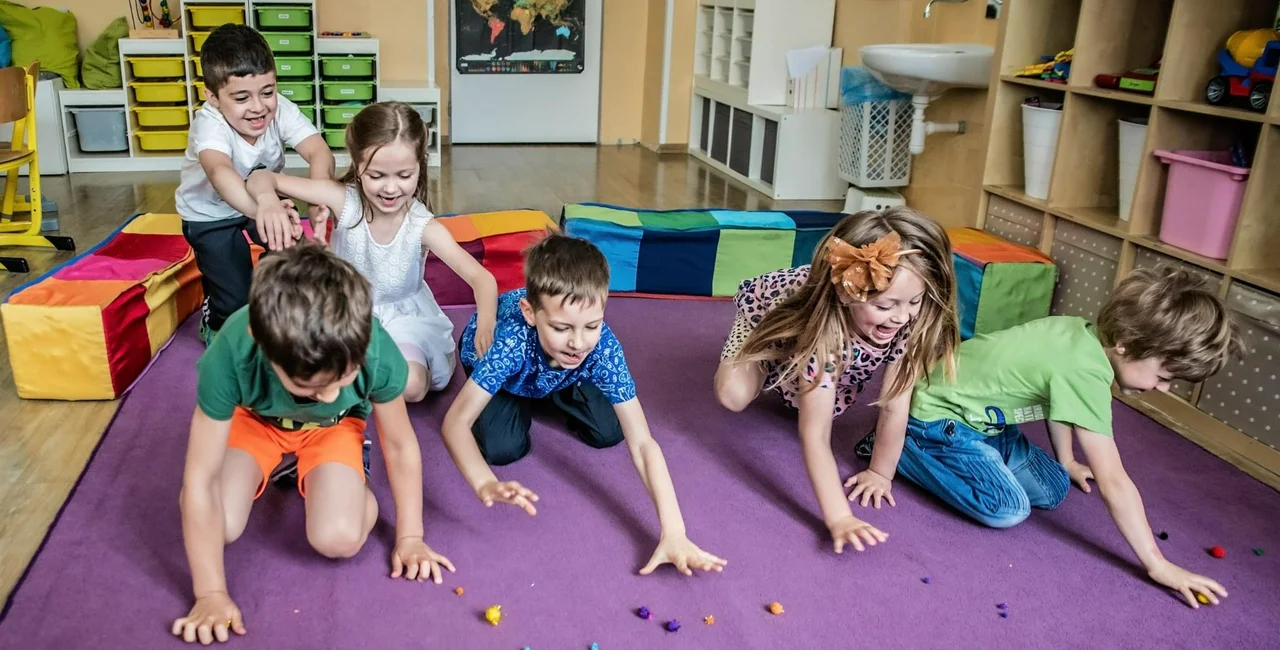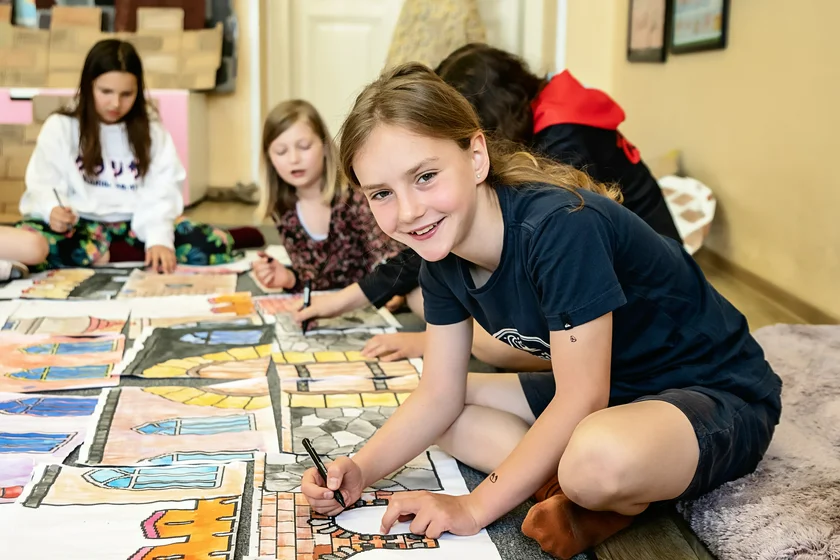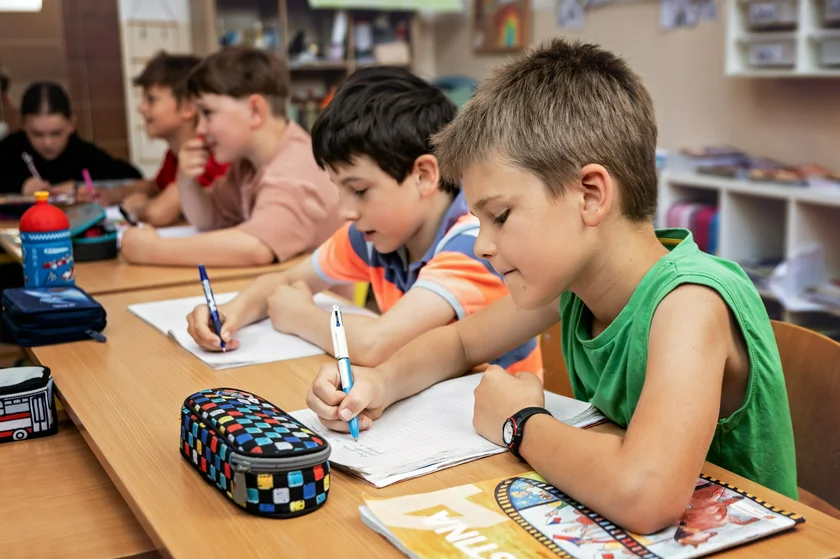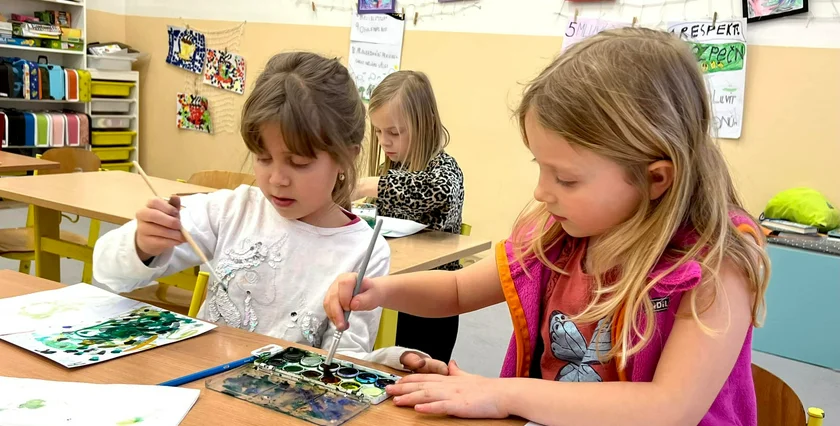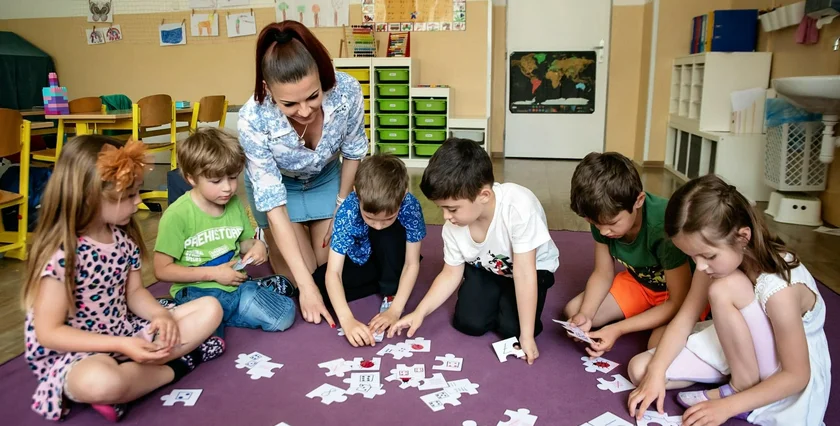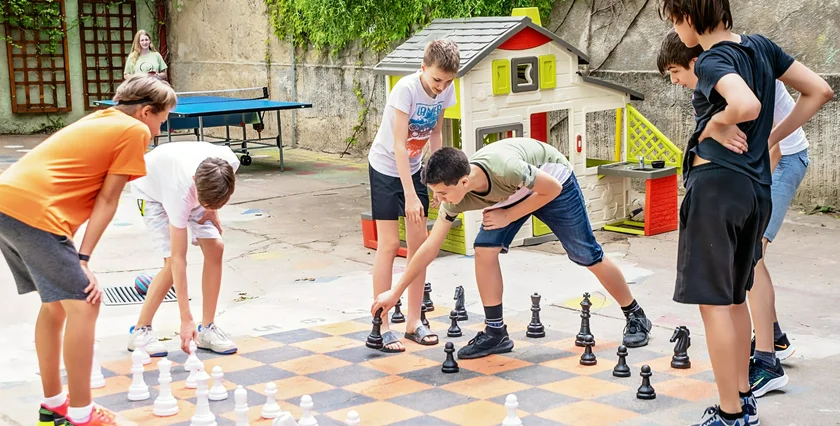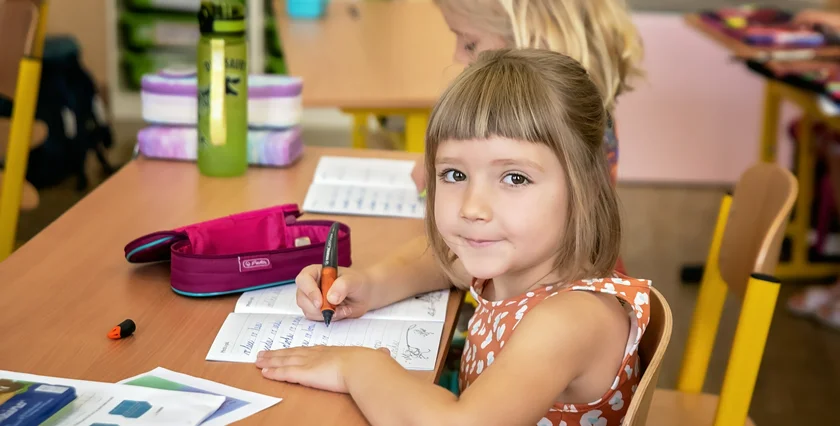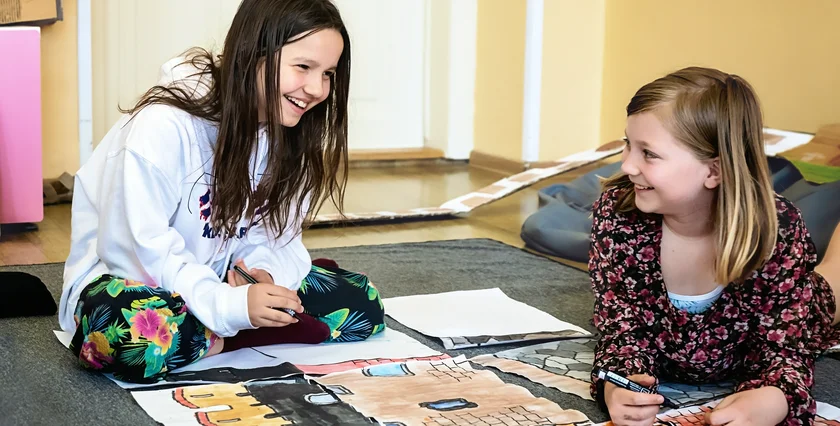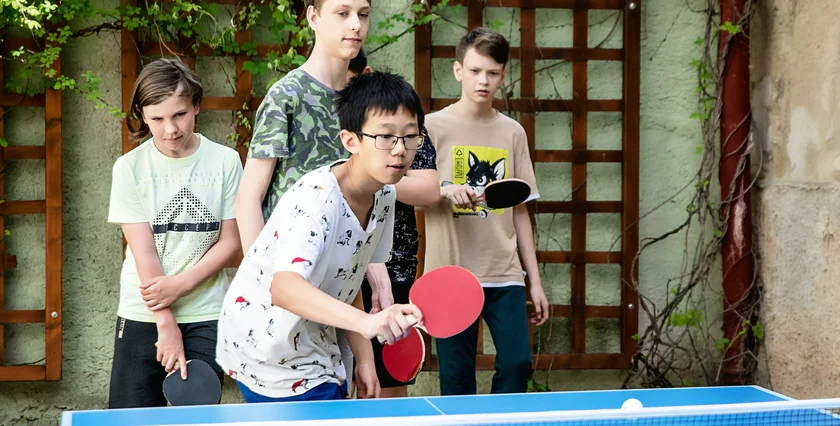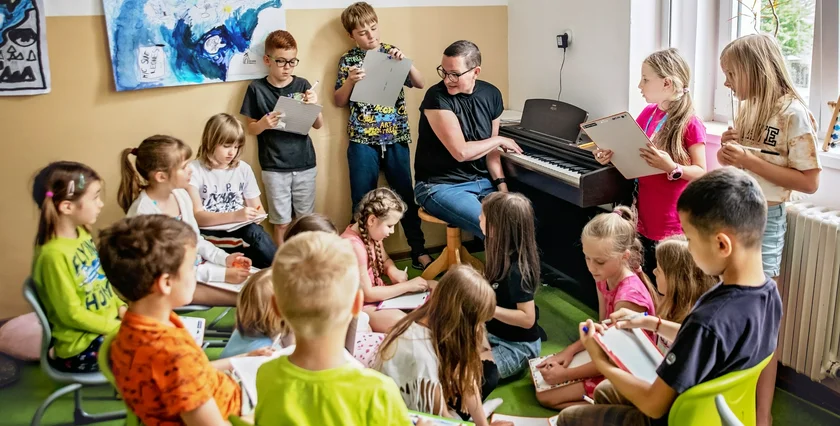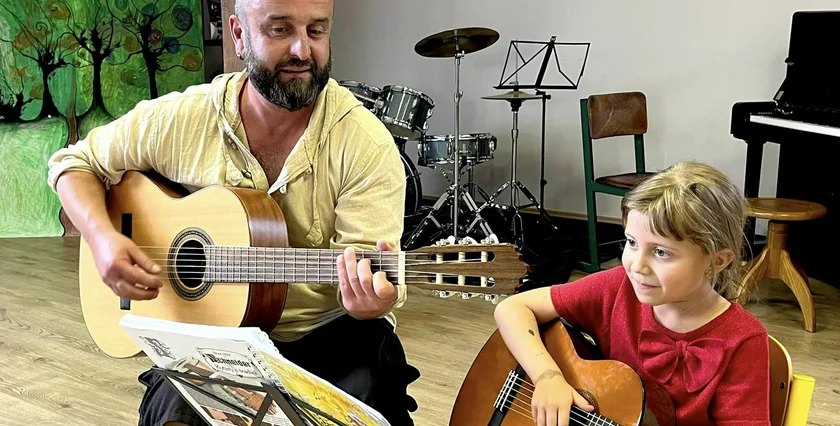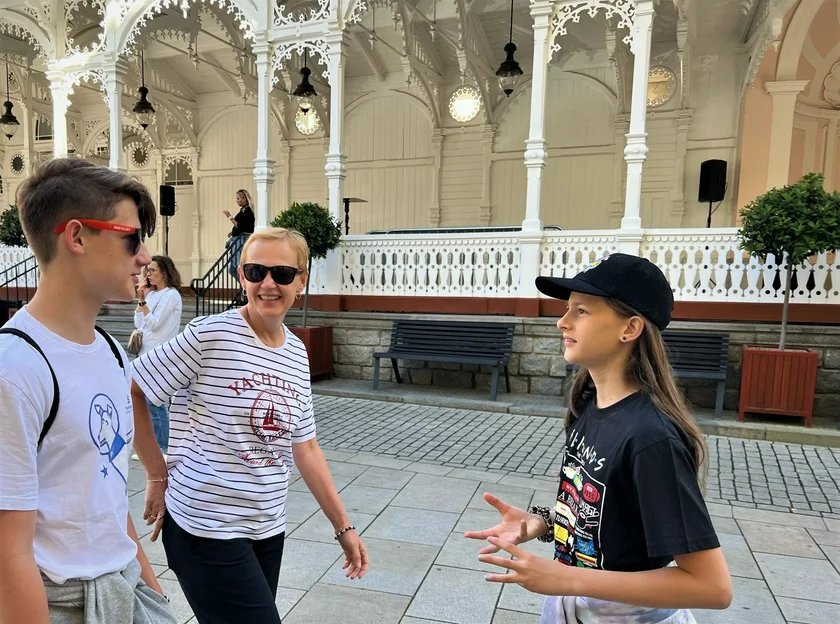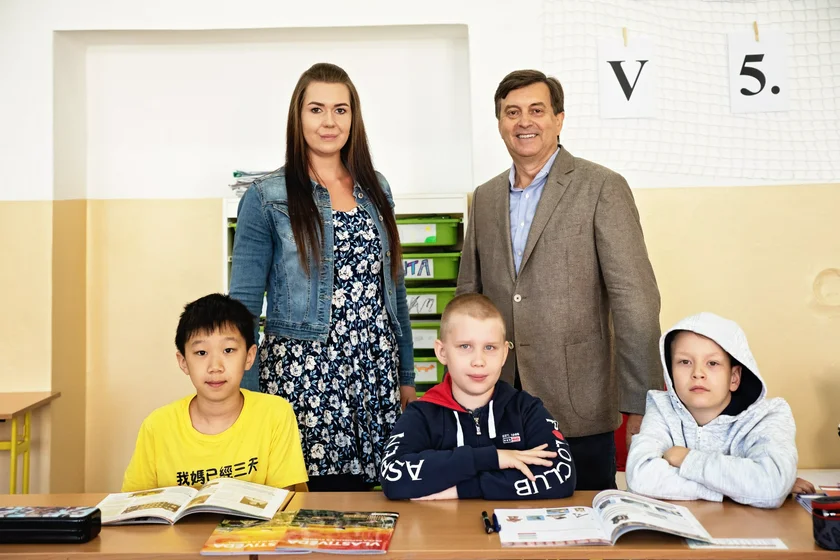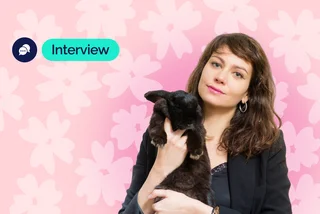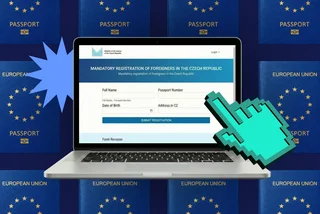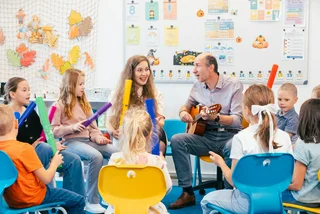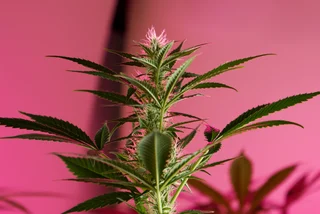The Czech School Inspectorate recently estimated that there may be up to 180,000 gifted students in the Czech Republic. But Czech state schools still struggle to identify and support the needs of exceptionally gifted pupils.
In this regard, the international school Cesta k úspěchu (Path to Success) School is unique in the Czech Republic, as it is the only elementary school in the country that is fully focused on catering to gifted and talented children.
Dr. Stanislav Svoboda, the founder of the Cesta k úspěchu School, explained that the school’s story began in 2003, and was borne out of his own experience of sending a gifted child to a state school.
“When David started the first year in state school, it was clear to me that his needs were not being met”. Recalling how the state school didn’t suit his son, he said, “There was an absence of individual approach, an emphasis on David’s shortcomings, and a disregard for his talents.”
Dr. Svoboda was convinced that his son could be better served by a different type of school. He formed a team of parents, psychologists, and educational specialists, which worked together with the common aim of opening a new type of primary school that would focus on gifted and talented children. Cesta k úspěchu School officially opened its doors in September 2007.
AT A GLANCE|Classes at Cesta k úspěchu are taught in Czech and English, and a third language, Spanish. The teachers are both native speakers of both English and Spanish. In addition to years 1-9, the school has also added a Zero Year program designed for children ages 4 to 6, who need a more intellectually rigorous kindergarten curriculum. The Zero Year program includes the basics of mathematics, science, IT, arts, and music, as well as English with a native speaker, and sports activities.
Fifteen years later, the school has become a well-established, diverse place of learning with a community made up of Czech and international staff, children, and parents.
How can you tell if you have a gifted child?
Dr. Svoboda said there are various definitions of giftedness. “Generally gifted kids have cognitive abilities that are higher than the average population, and they are hungry for information. Often you can distinguish these kids pretty early after birth, as they are very curious to discover the world.”
To be certain, the school administers a special non-verbal test as part of its admissions process. During this crucial first step, the talents of the children are identified and examined, with the aim of developing their personalities and maximizing their potential. This psychodiagnostic method also provides parents with insights into the cognitive development of their children.
As gifted children often exceed children of the same age in their intellectual capability, the school responds by creating individual educational programs that cater to each child's abilities, thus broadening, deepening, and enriching their experience of the curriculum.
Creating a safe space for learning
Dr. Svoboda says that the success of the school is due not just to the stimulating environment that it provides, but also to the culture of mutual respect that is engendered in the children from the moment they arrive at the school.
Care is taken to make sure that the child understands that a school is a safe place where they are accepted and motivated, and that respect towards peers and teachers is paramount.
Lucia Mansfeldová, MD, dermatologist, founder, and owner of Almiaderm Institute clinic is the mother of two daughters, Laura (13) and Mia (11), who attend Cesta k úspěchu school. Her son Max (4) will likely attend as well.
Dr. Stanislav Svoboda, founder of the Cesta k úspěchu school“I think the best way to teach kids to respect others is to respect them first,” says Dr. Svoboda. “Respect isn’t taught by rules, but by demonstration.”
She agrees that the less stressful and demanding environment paves the way to learning.
“In some schools, you can face problems like bullying or their kids don’t want to go to school because of a very strict and formal way of teaching. And this is a big problem, because otherwise very talented kids may lose their interest in studying and learning new things,” she said.
Class sizes are kept small (just 20 pupils per class) and discipline is based on the principle of mutual respect, and not interfering with the space of others.
Open and honest communication
Vladimíra Chlandová, General Counsel for T-Mobile Czech Republic a.s. & Slovak Telekom, a.s., enrolled her children in Cesta k úspěchu from first grade.
“Our children regard the teacher as an authority, and at the same time as an equal partner for discussions, they are not afraid to ask questions, discuss, express a different opinion, look for different solutions and think about things,” she said.
While problems do arise, Chlandová appreciates the school’s method of conflict resolution. “The solution is transparent, consistent, and both teachers and students, and if necessary, their parents, are actively involved in resolving the situation,” she adds.
Additional advantages for both parents are the international community and the way that children are encouraged to behave “naturally and casually” at school as well as the school’s multicultural environment.
Extracurriculars are essential
Another aspect of the school Mansfeldová appreciates is the school’s focus on the arts including theaters, voice, and music classes. Music plays an important role at the school and is a very important part of the curriculum, as Dr. Svoboda explains.
“It has been proven that when kids learn to play piano or guitar, it develops their brain because it is a complex task, as you must coordinate hands and listen and coordinate timing. It develops a range of skills.”
The school day at Cesta k úspěchu School is divided between morning and afternoon activities. In the morning, the lessons are derived from the state-mandated program. In the afternoon, there are elective courses, such as piano lessons, music, art, sport, science, and IT courses, all designed to nourish the minds and engage the bodies of intellectually curious children.
Student potential realized from the start
Dr. Svoboda maintains that Cesta k úspěchu is a special school, not because of the intellectual abilities of its students, but because of the atmosphere of mutual respect that exists between all members of the school community. Parents whose children attend the school tend to agree.
Chlandová said the school’s teaching method motivates children to be independent and encourages creativity and healthy social skills.
“My daughters like to go to school, they like to study, their creative potential is fully supported, they’re growing with a healthy self-confidence and I find them also very open-minded and communicative, ” says Mansfeldová.
This article was written in cooperation with Soukromá základní škola Cesta k úspěchu v Praze, s.r.o.. Read more about our partner content policies here.












 Reading time: 5 minutes
Reading time: 5 minutes 